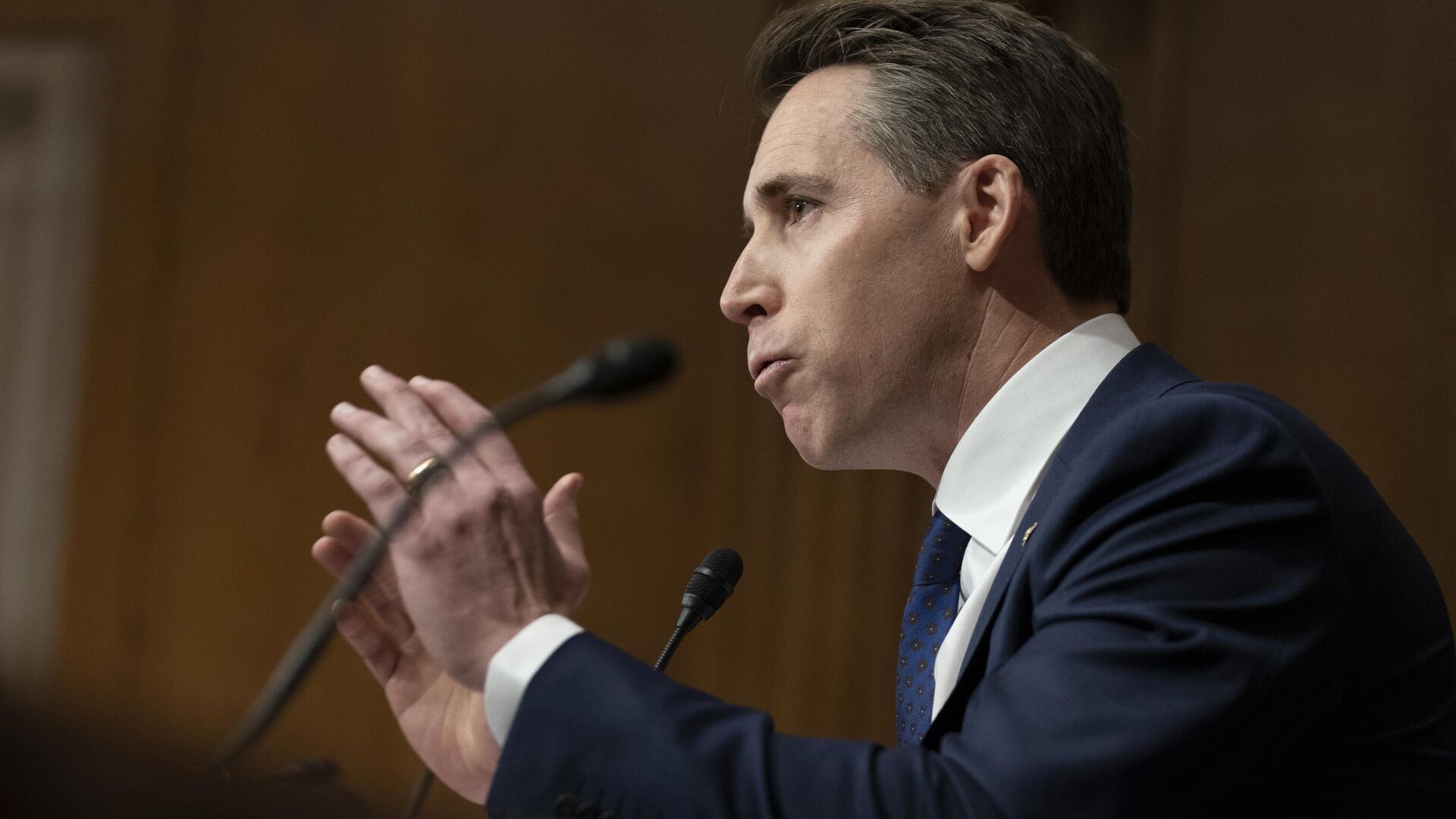https://sputnikglobe.com/20230321/us-senator-hawley-says-proposed-bill-to-end-normal-trade-relations-with-china-1108622543.html
US Senator Hawley Says Proposed Bill to End Normal Trade Relations With China
US Senator Hawley Says Proposed Bill to End Normal Trade Relations With China
Sputnik International
US Senator Josh Hawley unveiled a new bill to end normal trade relations with China in order to reduce the US' alleged dependency on Beijing, the senator’s office said in a press release.
2023-03-21T00:48+0000
2023-03-21T00:48+0000
2023-03-21T00:48+0000
economy
us
china
us-china trade war
us-china relations
josh hawley
https://cdn1.img.sputnikglobe.com/img/07e7/03/15/1108622306_0:160:3073:1888_1920x0_80_0_0_1ac6acaa8b194ff79b9a28460660c31f.jpg
Besides revoking China’s normal trade relations status, the Ending Normal Trade Relations with China Act will subject imports from China to higher tariff rates and provide the US President with the authority to impose even higher tariffs on China, the release said.The US granted China normal trade relations partner status in 2000 and supported Beijing’s accession to the World Trade Organization in 2001.Earlier in March, Chinese Deputy Commerce Minister Wang Shouwen said that China is ready to cooperate with the US on partially lifting restrictions on bilateral trade and investments.Trade and economic relations between Beijing and Washington have suffered not only from the pandemic but also from unilateral protectionist measures taken by the US, Wang added.
https://sputnikglobe.com/20230307/us-china-trade-shrinks-by-174-in-january-february-barely-surpassing-100-bln-1108136286.html
china
Sputnik International
feedback@sputniknews.com
+74956456601
MIA „Rossiya Segodnya“
2023
Sputnik International
feedback@sputniknews.com
+74956456601
MIA „Rossiya Segodnya“
News
en_EN
Sputnik International
feedback@sputniknews.com
+74956456601
MIA „Rossiya Segodnya“
Sputnik International
feedback@sputniknews.com
+74956456601
MIA „Rossiya Segodnya“
us senator josh hawley, ending normal trade relations with china act, us china trade, us china relations, trade war us china, new us trade tariffs on china, tariffs wars
us senator josh hawley, ending normal trade relations with china act, us china trade, us china relations, trade war us china, new us trade tariffs on china, tariffs wars
US Senator Hawley Says Proposed Bill to End Normal Trade Relations With China
WASHINGTON (Sputnik) - US Senator Josh Hawley unveiled a new bill to end normal trade relations with China in order to reduce the US' alleged dependency on Beijing, the senator’s office said in a press release.
"Today, US Senator Josh Hawley announced the first piece of legislation in his new Worker’s Agenda to Rebuild America. The Ending Normal Trade Relations with China Act would revoke China's normal trade relations status to reduce our dependency and protect America’s working class," the press release said on Monday.
Besides revoking China’s normal trade relations status, the Ending Normal Trade Relations with China Act will subject imports from China to higher tariff rates and provide the US President with the authority to impose even higher tariffs on China, the release said.
"As we face a new age of competition with China, we need an agenda in Washington that will make our working class strong and independent. We can start by revoking the sweetheart deal DC elites handed to China 23 years ago - end normal trade relations, put in place strong tariffs, and protect American workers," Hawley said in the press release.
The US granted China normal trade relations partner status in 2000 and supported Beijing’s accession to the World Trade Organization in 2001.
Earlier in March, Chinese Deputy Commerce Minister Wang Shouwen said that China is ready to cooperate with the US on partially lifting restrictions on bilateral trade and investments.
Trade and economic relations between Beijing and Washington have suffered not only from the pandemic but also from unilateral protectionist measures taken by the US, Wang added.



